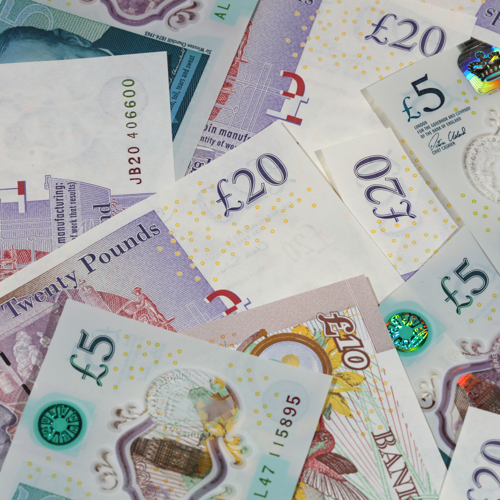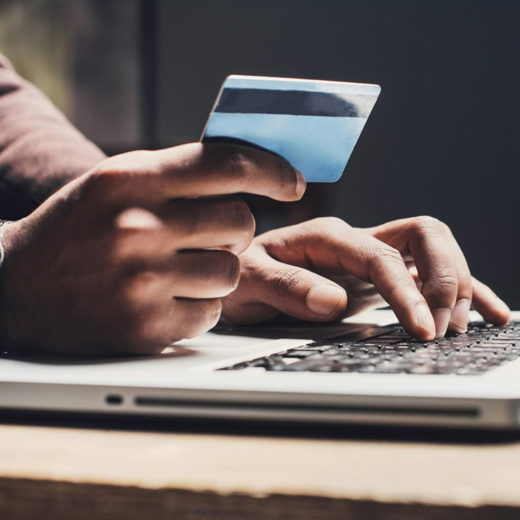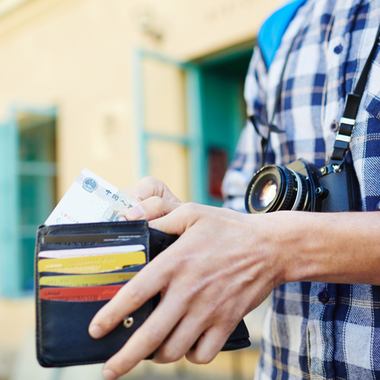
- Five minutes read
The eCash advantage: why it's high time merchants accepted cash at the online checkout
Consumer demand for online cash payments is on the rise. Merchants who accept it at the online checkout stand to gain a significant competitive edge.
While debit cards and credit cards continue to be the most popular way to pay for goods and services online, consumer preferences are changing.
According to our latest Lost in Transaction research — which surveyed 11,000 consumers in 10 countries across the Americas and Europe — 47% would prefer to pay online with eCash – or in other words, use cash for eCommerce and other online payments, e.g. making a financial transaction online and then paying for it in cash at a nearby store.
More to the point, 44% of respondents told us they'd buy online more often if eCash payments were an option. Which suggests that merchants who don't currently accept eCash aren't just missing out on a potential future opportunity. They're actively losing sales, today.
So what's driving consumer demand for eCash payments? And how do merchants stand to gain by adding it to their online payment mix?
The quest for control
Our research suggests that the growing preference for eCash payments is down to two key factors: the increasing importance of online security in eCommerce transactions, and a desire for more control over spending.
With online fraud at record levels and the cost of living skyrocketing, consumers have become more risk-averse and budget-conscious.
Given a choice of payment methods, 44% of our respondents would choose the one they feel best protects them from the risk of fraud. 70% also worry about sharing financial details online, and would prefer not to do so.
44% of our respondents have also changed their online payment habits to make better use of their shrinking budgets. With the notable exception of credit cards, lending products are falling out of favor. Instead, 40% have shifted towards payment methods that enable them to track their spending more accurately.
Because eCash doesn’t require consumers to share any financial details, it makes online payments safer. When a customer chooses eCash at the checkout, they're given a unique barcode they can scan at one million points of sale in 55+ countries to complete the purchase. This guarantees the transaction is secure and private.
Our research also suggests consumers are using eCash as a budgeting tool, with 26% of those who have changed their online payment habits to better control their spending paying with eCash more often.
This replicates offline behavior, where consumers are also using cash for better budgeting.
A recent survey of UK ATM users, for instance, found that 39.2% are using cash to control their spending. The UK Post Office has similarly seen a record 20% year-on-year increase in cash deposits which it attributes to more people turning to cash to help them stick to a budget.
The other side of the (digital) coin: how eCash payments benefit merchants
If consumers have excellent reasons for wanting to pay online with eCash, there's an equally compelling case for merchants to accept it.
To begin with, offering eCash at the checkout creates more payment choice. And, in a landscape where customers are ready and willing to walk away from online transactions when their preferred payment method isn't available, this can be a crucial competitive differentiator.
But eCash also has three other significant benefits for merchants.
First, because the transaction is settled in person and no financial details are shared online, cybercriminals can't get their hands on sensitive data.
There's no risk of fraud or chargebacks. Instead, merchants can boost trust by offering consumers a secure and private payment option, without introducing needless friction into the process.
Second, just as consumers can turn to cash should their card be declined in a bricks-and-mortar store, eCash can be a fallback if they run into payment issues online. One in ten online card payments get declined. So, the impact that making eCash available as an alternative can have on the volume of abandoned transactions is not insignificant.
Thirdly, eCash can enable merchants to widen their addressable market.
According to a 2021 Morning Consult survey, 34% of Americans are either unbanked or underbanked, and, as a result, rely on cash to make payments. Similarly, in the UK, 5 million people are dependent on cash, either because they're unbanked, they're on a low income, or they receive part of their salaries in cash.
For these people, online shopping in its current form — where payment can only be made with a debit card, a credit card, or a digital wallet that’s connected to a card or bank account — is difficult or simply impossible. Adding eCash to the checkout can open the door for them to start participating in the online economy.
And accepting eCash is more than just a revenue opportunity.
In 2021, 20% of all retail sales worldwide — including sales of essentials like groceries — took place online. And by 2025, that will be closer to 25%. The more commonplace eCommerce becomes, the greater the risk that those who rely on cash will become unable to buy essentials or get locked out of the economy completely.
From this perspective, there's also a moral argument for accepting eCash payments: that of ensuring nobody is left behind.
eCash payments are critical to the future of eCommerce
In the offline world, cash is more than just a convenient means of payment. It's a guarantee of privacy and anonymity, a way to control spending, and a fail-safe when technology lets us down. And, for many in difficult circumstances, it's a lifeline they depend on through their most challenging times.
Now that the lines between offline and online commerce are getting blurrier, it's no surprise that cash is starting to serve the same purposes online as it did offline. With cybercriminals getting more sophisticated, and a dire economic outlook, it stands to reason that savvy consumers would want to take steps to be safer and stay on budget.
The good news is that, if you’re a merchant, eCash payments have big benefits to you too.
Adding it to your online checkout is relatively simple and will increase trust, lower your risk, and give customers’ lifetime value a healthy boost.
Want more insights on consumers' shifting attitudes to payments and how you can meet their expectations moving forward?
Read the full Lost in Transaction report




